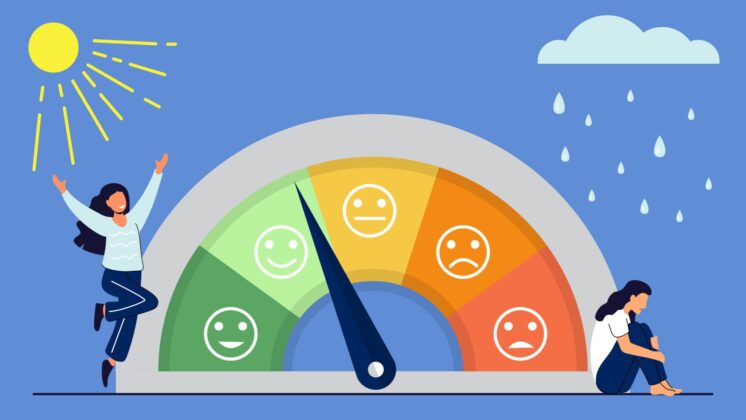Leading High Performing Remote Teams
How can leaders ensure that performance remains high in remote or hybrid-work environments?
Content Marketing
In this course, you’ll learn how compelling blogs, videos, podcasts, and other media can reach customers and drive sales. You’ll also learn steps for creating an effective content marketing plan, and some important ways to measure its impact and success.
Content marketing is a essential digital marketing strategy for companies looking to provide relevant and useful information to support your community and attract new customers.
Get started on your content marketing journey today.
Sustainable Innovation in Times of Disruption: Choices for a Better Society
There are opportunities for progress all around us. The key is to innovate on these opportunities sustainably.
To help identify most effective path forward, you'll need to gain a global perspective to these challenges in an open discussion. How can Japan and the world take action to create a more sustainable, innovative world? Where do you fit in?
It's time to find out.
Social Media & Digital Communications: Impact on Global Public Opinion
Social and digital media have dominated the communications industry for decades. But it's no secret that social media has the power to sway public opinion, and the way in which many companies use these platforms could be seen as manipulative.
What do companies need to be aware of when utilizing social and digital media? How can these mediums be used to better communicate strategically with the world?
Discover what top media and communications experts have to say.
CAGE Distance Framework
Want to expand overseas? The CAGE distance framework can help ensure you're constructing a solid global strategy in four areas: cultural, administrative, economic, and geographic. Learn how to leverage useful differences between countries, identify potential obstacles, and achieve global business success.
Servant Leadership
There's more to leadership than driving a team to profit. In fact, there's a word for looking beyond self-interest to prioritize individual growth: servant leadership. Try this course for a quick breakdown of what that is, how it works, and how it can lead to organizational success.
Strategy: Creating Value Inside Your Company
Have you ever wondered why certain companies are more successful than others? The answer is strategy: internal processes that control costs, allocate resources, and create value. This course from GLOBIS Unlimited can give you the tools you need for that strategic edge.
Strategy: Understanding the External Environment
To plan strategy on any level, you need to understand your company's external environment. In fact, your level of understanding can impact hiring, budgeting, marketing, or nearly any other part of the business world. Want to learn how to do all that? This course from GLOBIS Unlimited is the perfect first step!
Using Japanese Values to Thrive in Global Business
Japanese companies have unique cultural, communication, and operational challenges. But they also have values that have led to remarkable longevity. Check out this seminar to hear how these values help earn trust from overseas head offices and develop employees.
Marketing: Reaching Your Target
Every company works hard to get its products into the hands of customers. Are you doing everything you can to compete? In this course, you’ll find a winning formula to turn a product idea into real sales. Follow along through the fundamentals of the marketing mix and see how companies successfully bring products to market.
Basic Accounting: Financial Analysis
Want to compare your performance vs. a competitor? Or evaluate a potential vendor? Then you'll need to conduct a financial analysis. This course will teach you how to use three financial statements and evaluate financial performance in terms of profitability, efficiency, soundness, growth, and overall strength.
Career Anchors
What drives you to be good at your job?
Career anchors are based on your values, desires, motivations, and abilities. They are the immovable parts of your professional self-image that guide you throughout your career journey.
Try this short GLOBIS Unlimited course to identify which of the eight career anchors is yours!
Leadership with Passion through Kokorozashi
The key ingredient to success? Passion.
Finding your kokorozashi will unify your passions and skills to create positive change in society. This GLOBIS Unlimited course will help you develop the values and lifelong goals you need to become a strong, passion-driven leader.
The changes that came with the COVID-19 pandemic have ranged from jarring to downright traumatic. It’s not just that we all have to deal with them—it’s that we have to deal with them everywhere all the time. They’ve disrupted our most common routines: commuting to work, chatting with coworkers over lunch, and even visiting loved ones.
What’s worse, none of us got much time to adjust. The world keeps spinning. Who has the time (or strength) to consider next steps in a career journey?
Actually, you do—but only if you’re able to refocus. You can do that in three steps:
- Understand that you are not alone
- Identify your stressors
- Ensure that the career decisions you make are mindful, not reactionary
Follow these, and you’ll find you can overcome compounding challenges and overwhelming stress—or, as scientists call it, “allostatic overload.”
Allostatic Overload: We’re All Dealing with It
In what may be a comforting revelation, there’s an actual scientific term for the compounding feelings of stress that we’ve all experienced since early 2020: allostatic load. According to Bruce McEwen and Eliot Stellar, the researchers who coined the term, allostatic load refers to the toll that chronic stress and anxiety take on our bodies.
When that wear and tear becomes too much, we reach allostatic overload.
Allostatic overload makes it difficult to relax, feel safe, or even have fun—let alone focus on your next big career move. Your body and mind are on red alert, and they simply refuse to turn off. It sounds intense—and it is—but understanding why you are feeling this way is the first step to overcoming it.
How to Overcome Allostatic Overload
More likely than not—that is, if you’re like 41.1% of adults in the United States—your body was not naturally equipped to handle the allostatic overload brought on by the pandemic. As a result, you’ve probably felt mentally and physically exhausted from holding everything in.
The best way to remedy that is a two-step process:
- Identify your burdens.
- Consciously release yourself from them.
Step 1: Identify your burdens.
When allostatic load starts to build, stop what you’re doing and acknowledge what you’re feeling. When we honor our feelings and accept them for what they are, they become much less scary—and much easier to deal with. That will put you on solid ground again, and you can continue to move forward with a clear head.
- Evaluate how your body responds to stress. If your palms suddenly begin to sweat, your breathing becomes rapid, or your heart rate increases, your body is letting you know you are in a stressful situation. Understanding when you’re stressed allows you to understand why you’re stressed. So start being mindful of the signals your body is sending you.
- List what’s stressing you out. Jot down the events, tasks, or interactions that trigger your anxiety. This will help you identify patterns and, from there, identify which stressors come from external sources (like a meeting or evaluation) and which are internal (doubts or insecurities).
Step 2: Consciously release your burdens.
Next, you’ll need to bridge the gap between feeling and doing. Here are a few quick tips you can use in your daily life:
- Take a deep breath. It sounds overly simple, but breathing really is an effective way to elicit a relaxation response and combat those nasty anxieties that make it so hard to focus.
- Practice positive affirmations. As your allostatic load builds, you’ve probably caught yourself thinking or saying, “This is too much! I cannot do this right now!” Catch those negative thoughts before you start to spiral into overload. Then replace them with positive affirmations such as, “I have the expertise my team needs to get this done” or “I take pride in the work that I do.” A bit of verbal self-kindness will go a long way towards improving your mental wellbeing.
- Find a way to physically release stress. Anxiety can affect you physically as much as it does mentally, so provide your body with physical stress release. That doesn’t mean you have to go for a run. The tapping method is a popular technique similar to acupuncture that involves controlled tapping of pressure points across your body. You could also try coloring books, meditation, or baking.
If you try all of these or other methods and still feel burnt out at work, it may be a sign that you’re overdue for a career change. Just be sure that your decision isn’t a result of a fight-or-flight moment of panic—and don’t just go and quit because everyone else is doing it.
The Great Resignation: Mindful Evolution or Collective Allostatic Overload?
According to an Indeed survey, 67% of current employees report that their feelings of burnout have gotten worse during the pandemic. This type of statistic has been making the rounds for quite some time now. In fact, it is pointed out again and again as one of the key contributing factors of the Great Resignation—the record-breaking wave of workers quitting their jobs amidst the pandemic.
It seems people are just over it. But perhaps the global community is experiencing a collective allostatic overload.
We know that our bodies and minds are affected by the trauma of the pandemic, and that many of us were already unhappy when that started. Dealing with micromanagers, stressful commutes, slow promotions, and even discrimination was bad enough. It’s no surprise that a pandemic on top of all that brought knee-jerk resignations.
If you’re feeling the effects of an allostatic overload and considering leaving your current position because of it, take a moment to stop and reflect. Remember a lot of people are feeling this way. Identify your stressors. Then consider your career mindfully: Would leaving your job alleviate your anxieties or exacerbate them? Are you considering keeping your job just because you have it?
There are plenty of valid reasons to leave your current employer behind. In fact, we’ve actually been holding onto our jobs much longer now than we have in the past, and that’s not necessarily a good thing. But when you do eventually make that next big jump in your career, make sure it will land you in a better place. Don’t let allostatic overload speak for you.
Zoom meetings will continue. Remote work is certainly here to stay. The Great Resignation is just beginning. This is our new normal—but allostatic overload doesn’t have to be a part of it or the way you shape your career.



